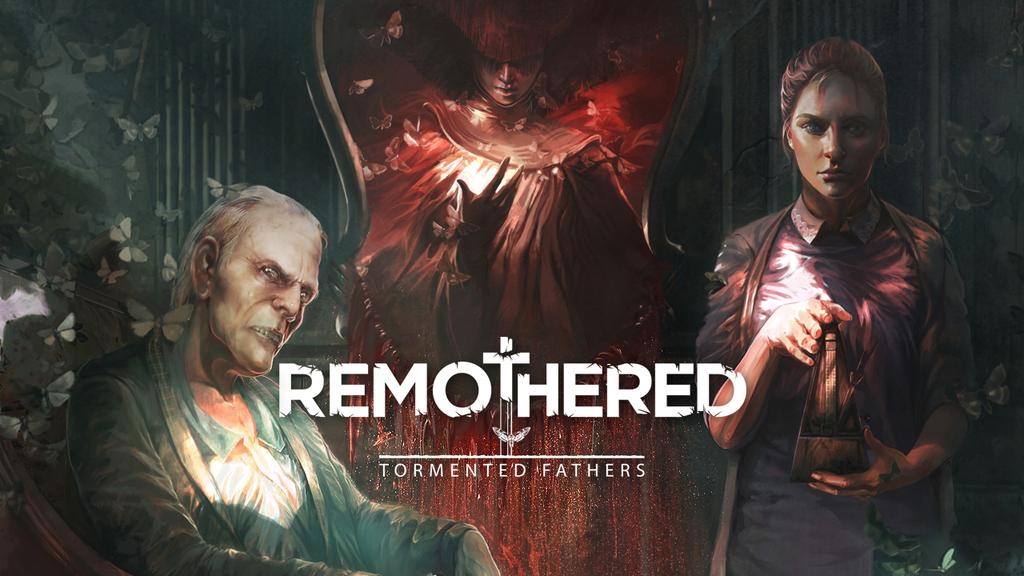
Conceived initially as a fan remake of Clock Tower by developer Chris Darill, Remothered: Tormented Fathers is a new survival horror game that harkens back to an era when classics in the genre were born. At the time, Japanese publishers brought us titles like Haunting Ground, Rule of Rose, Silent Hill 2, Fatal Frame and, of course, Clock Tower 3. Today, these games unmistakably evoke feelings of nostalgia for a type of survival horror game only found in the early 2000s. Remothered: Tormented Fathers taps into the unique type of experience these games delivered for a psychological survival horror game that balances modern gaming conventions with the look, feel, and tension of genre classics.
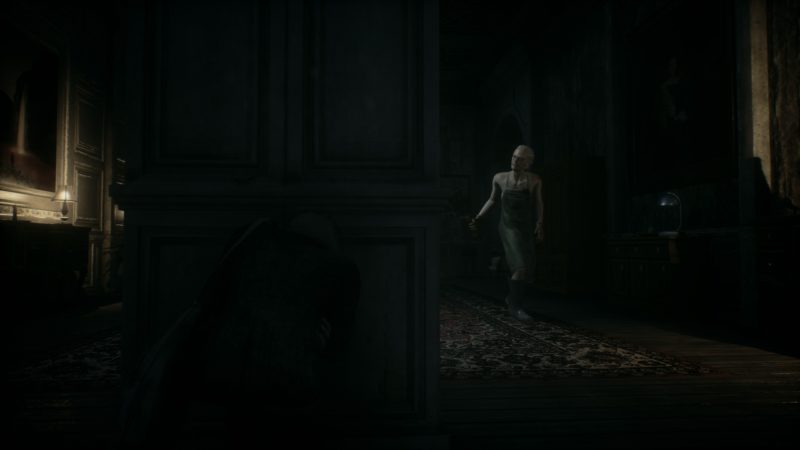
The premise of Remothered is delightfully simple. As a woman named Rosemary, players find themselves outside of the estate of Richard Felton — a wealthy and sick man whose daughter Celeste disappeared some years ago. Rosemary, for reasons initially not fully revealed to the player, is desperate to find Celeste and expose Felton as a murderer. After a very confrontational encounter with Felton, Rosemary is escorted outside by his caretaker and left waiting until night for her chance to sneak back in. Unfortunately for Rosemary, Felton is not only a crass individual, but he’s also violently unstable. She soon finds herself locked in a mansion with a murderous old man armed with a sickle, and a mystery begging to be solved.
The story of Remothered is one that can be a little difficult to follow at times, as story scenes occasionally feel a tad oddly placed. Dialogue can feel exaggerated as well, with lines intended to sound profound instead coming across as somewhat forced (something not unfamiliar to fans of PS2 era horror games). But, for the most part, Remothered does a great job of pulling you into its world. The storytelling deserves a nod, as does the voice acting — both underline the game’s surprisingly high production values and attention to detail, elevating the game well above most of the indie horror titles I’ve played on PC. I’m surprised Remothered is just $15 — I’ve played much less impressive indie games that cost more.
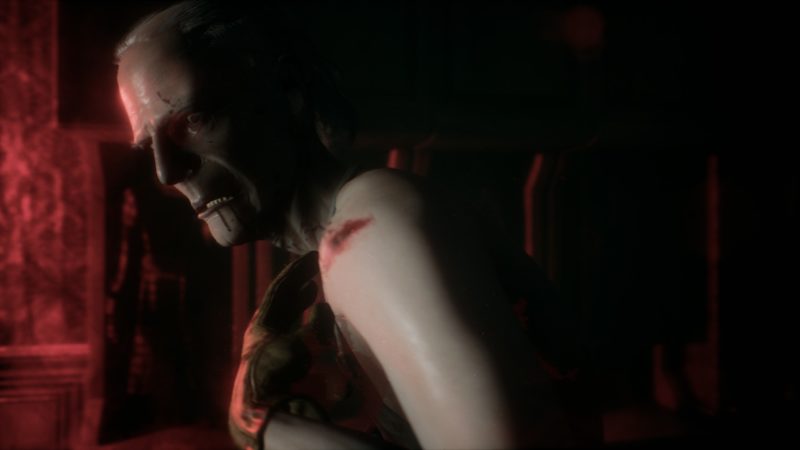
Rosemary — doing her best Jodie Foster in the Silence of the Lambs look — enters the Felton estate without means to truly defend herself. Remothered is all about stealth and evasion. Defensive and diversion items are the only things you can use against an attacker. While I didn’t make the most of diversion items until near the end of the game, you can place things like a clock or radio somewhere on the ground at any time to direct a stalker away from your path. Alternatively, some of these items can be thrown across a room to create a luring sound or, when in a desperate situation, thrown at an enemy to temporarily stun them. Defensive items like knives and screwdrivers are only usable when grabbed by an enemy and used to stun them for a duration of time long enough for Rosemary to slip into a closet or under a couch. One must be careful not to use the run button in excess though, even when fleeing from an attacker, as the sound will continually point them in your direction.
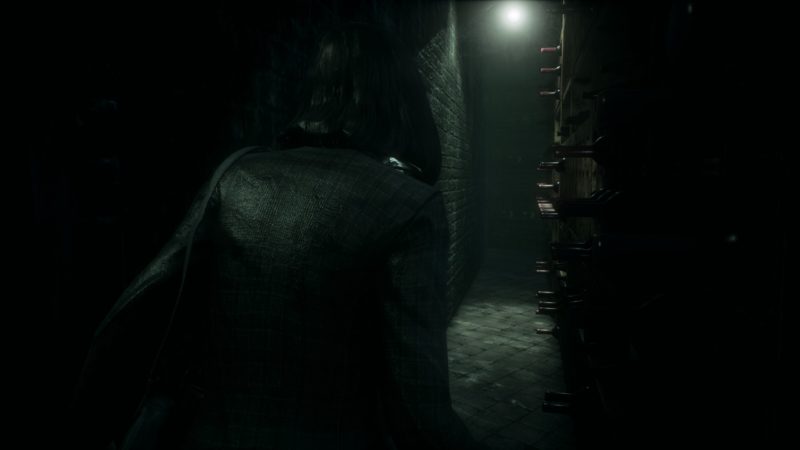
The game isn’t especially difficult due to its lack of combat. Manual save points are generously available, and there’s the occasional auto-save in scripted scenarios. Perhaps the biggest challenge players of Remothered will face are their own wits. Puzzles in Remothered tie to simple items strung about the Felton mansion that unlock new paths for Rosemary to explore. The sequence of items is fairly linear to progress, and an objectives screen provides light contextual clues as to what needs to be done. But if you’re not thorough in each new room explored, or not paying attention to the on-screen text, you may have to backtrack a few times to complete your next objective.
One source of confusion I, and other players I’ve watched play, had involved two obstacles that both needed batteries to activate. One uses a singular “battery,” and the other uses plural “batteries.” Missing this detail will mean revisiting different floors of the house, which can be frustrating given how slow Rosemary needs to move to avoid detection. Later stages ramp up the difficulty by taking away hiding spots and/or defense items. Just prior to me finishing the game, the developers released a patch to address the final confrontation which originally gave the antagonist instant-kill abilities in a confined space. Frankly, had this scene not been altered, my review would be less positive; this section of the game was ridiculously unfair.
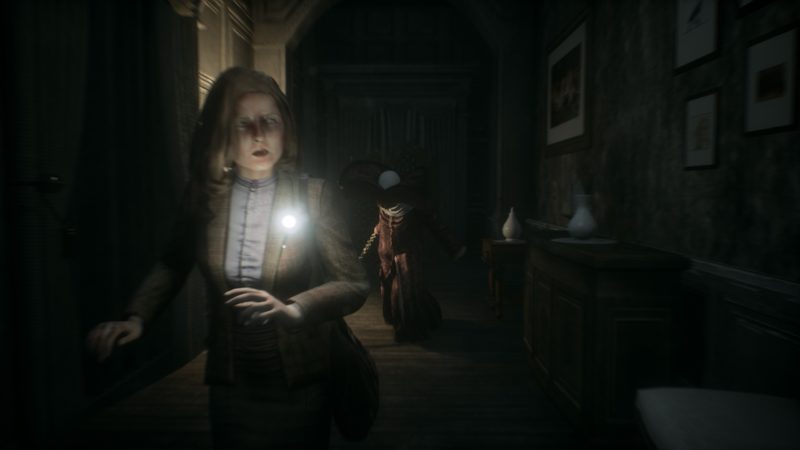
Remothered’s art direction is simply fantastic. Akin to games like Clock Tower 3 and Rule of Rose, Remothered drops players in environments adorned with drab and dated decor. Furniture and dressings once considered luxurious were perversed by time and neglect. The Felton estate is ominous, and the game’s visuals are impressive. But good graphics and art design mean nothing without framing. Beyond just the cutscenes, the setpieces of Remothered shine and successfully unnerved me. I’m a sucker for level design that heavily considers the framing of a scene based on the player camera perspective. The deeper Rosemary went into the mansion, the more I couldn’t help but take the occasional screenshot (even if it led to one of her many violent death animations).
In its short 5-6 hour runtime, Remothered does an exceptional job making its antagonists memorable and frightening. Felton’s frail form is deceptively strong, and his attire (a butcher’s smock and nothing else) is bizarre. His ramblings can be heard from across the mansion and through the walls; moving around a corner and coming face to face with him is an effective jump scare that happens naturally through play. But Felton isn’t the only one locked in the mansion with Rosemary. Going back to the game’s set-piece framing, the encounters with these other antagonists are the highlights of the game. Scenes set in the wine cellar and attic are especially noteworthy.
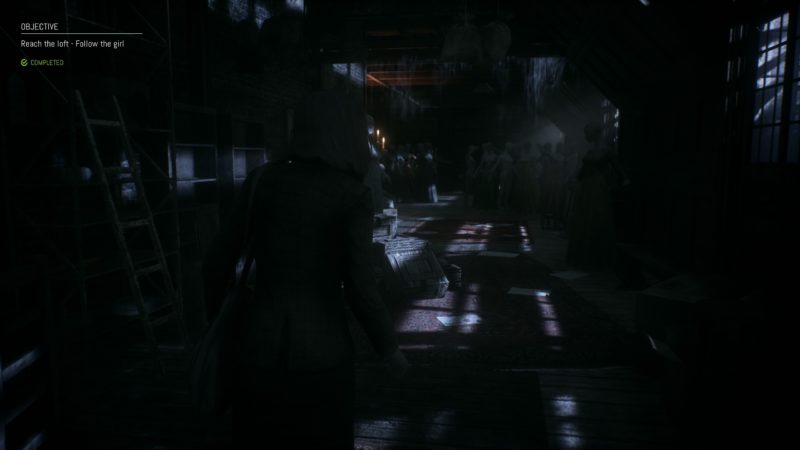
Remothered: Tormented Fathers has come a long way since its origins as a Clock Tower fan project. It’s more than an homage to a single series or a style of survival horror; after finishing the game it has earned its place alongside the classics in the genre. Developer Stormind Games and lead Chris Darril have distilled what makes those games so iconic into a new IP that I eagerly hope becomes a multi-part series. For all of those out there mourning the lack of “real” survival horror games, your prayers may have been answered.
 (8.5 / 10)
(8.5 / 10)
Great
 (8.5 / 10)
(8.5 / 10)Rely on Horror Review Score Guide
A Steam review key was provided by the developer.
Specs: i7 7700K, GTX 1080 Ti, 32GB RAM.




